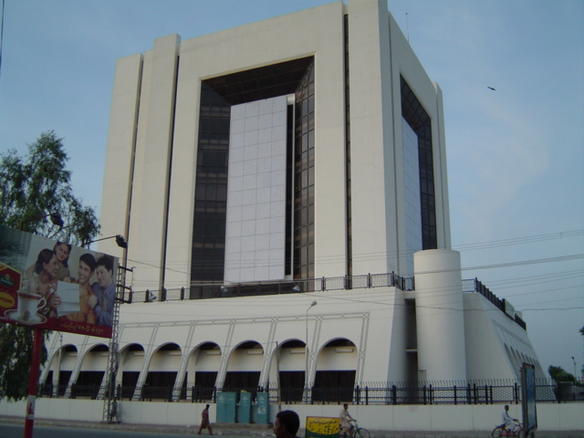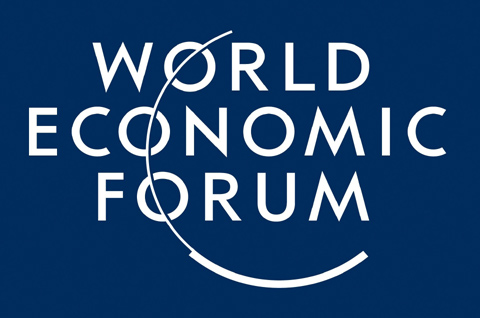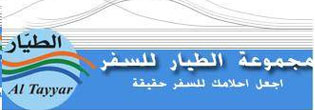Business & Finance Group - Global Forum - Balkans: World Economic Forum’s Lisbon Review 2010 released on Sunday, ahead of the upcoming World Economic Forum on Europe studies the progress made by EU Member countries in the far-reaching goals of the EU’s Lisbon Strategy of economic and structural reforms.
The World Economic Forum on Europe will open today, bringing together over 400 leaders from business, government, academia and civil society from over 40 countries. The meeting will be held under the theme Renewed Leadership, New Vision from 10 to 11 May. It is the first time that the World Economic Forum on Europe will be held in Brussels. The meeting is co-hosted with the Government of Belgium shortly before it assumes the rotating presidency of the European Union.
“In 2000, the EU set for itself an ambitious action and development plan with the Lisbon Agenda. As this Review indicates, while some progress has been made, much remains to be achieved in order to fully harness Europe’s economic potential. As Europe and the world emerge from the most significant economic crisis in a half-century, accelerating the reform process articulated through efforts such as the new Europe 2020 Strategy will be critical for ensuring that the region gets back to growth,” said Klaus Schwab, Founder and Executive Chairman of the World Economic Forum.
In 2010, Cyprus (4.83) and Slovenia (4.79) ranked 13th and 14th, respectively, out of the 27 EU Countries. Greece ranked 23 (4.18) while Romania (3.96) and Bulgaria (3.77) ranked 26 and 27th.
The EU 27 average is 4.81 while the United Staets is 5.27
According to the study, several 2004 accession countries are ranked ahead of many longer-standing EU Members, including Estonia, Slovenia and the Czech Republic. This implies that a number of these more recent Members are closer to meeting the Lisbon Goals than many of the longer-standing Members.
Among potential future Members, Croatia and Montenegro outperform the four lowest-ranked EU Members – Poland, Italy, Romania and Bulgaria – and Turkey and FYR Macedonia outperform Bulgaria.
More generally, there is much consistency in the comparative
performances. In particular, the four Balkan countries
continue to constitute both the two best performers of the
group (Montenegro and Croatia) as well as the two worst
performers (Albania and Bosnia and Herzegovina), with
the other countries remaining in between, with some small
changes in rankings.
Montenegro has received a rank of 1 of the table "11 Non-EU Eastern European Countries" scoring 4.19. Croatia received the number 2 slot with a ranking of 4.18. Turkey takes the 4th spot with 3.85 while FYR Macedonia takes the 5th slot with 3.79. Serbia has the 8th ranking wtih 3.51 and Albania (3.47) and Bosnia and Herzegovina (3.07) take the 10th and 11th spot.
In analysis, topranked Montenegro outperforms the five lowest-ranked EU members of Greece, Poland, Italy, Romania and Bulgaria. Croatia is on a par with Greece and ahead of the four countries ranked below it. Azerbaijan outperforms Romania and Bulgaria, and Turkey and FYR Macedonia outperform Bulgaria. In other words, the top-performing non-members receive better assessments overall than a number of present members.
As mentioned above, the non-EU Balkan countries are spread throughout the ranking of the 11 comparators, occupying the first two positions as well as the last two. Montenegro and Croatia are ranked 1st and 2nd of the group. Montenegro’s greatest strengths are in the dimensions of financial services and social inclusion, both areas where it scores above the average of the Accession 12 group of countries.
Croatia’s main strengths are its network industries and efforts toward sustainable development, where it does better than the Accession 12. With regard to weaknesses, both countries require efforts in improving their enterprise environment, with burdensome regulation and an onerous process required to start businesses, especially in Montenegro.
Within the middle of the ranking are two other Balkan countries: FYR Macedonia (5th) and Serbia (8th). FYR Macedonia’s enterprise environment is its greatest comparative strength, with a score ahead of the Accession 12 countries and just behind that of the EU27, characterized by a good business start-up environment and a relatively supportive regulatory structure. Serbia’s greatest strength is also the quality of the enterprise environment as measured by its score. On the other hand, both countries demonstrate weaker performances in measures of social inclusion and sustainable development.
At the bottom of the table are Albania (10th) and Bosnia and Herzegovina (11th). Albania’s comparative strength is in the enterprise environment, where it is just barely behind the Accession 12 average and not far behind the EU27 score. Beyond these few areas, both countries receive very poor assessments across most other areas, with Bosnia and Herzegovina ranked among the bottom two countries (ranked 10th or 11th) for all eight dimensions, and always well below the various EU averages shown for comparison. Given that these countries are potential candidates to join the EU, significant efforts must made to bring their performance more in line with EU levels.
Turkey is ranked 4th in the table, with some relative strengths balanced by weaknesses in a number of dimensions. Turkey is ranked 1st out of all countries in the table and not far behind the Accession 12 average for the extent of liberalization, with the economy characterized by high levels of competition. Financial services are also relatively well developed, ranked 2nd behind Montenegro out of the 11 countries and ahead of EU members such as Latvia and Romania. The country’s enterprise environment is rated close behind that of the Accession 12 average, due to the relative ease of setting up a business in the country. On the other hand, Turkey’s competitiveness is held back by its performance in a number of other areas. It has not
yet developed an information society that is sufficiently
supportive of productivity enhancements, and measures of
innovation and R&D remain below EU standards.
The eight dimensions measured by The Lisbon Review 2010 are:
1) Creating an information society for all
2) Developing a European area for innovation and R&D
3) Liberalization (completing the Single Market; state aid and competition policy)
4) Building network industries
5) Creating efficient and integrated financial services
6) Improving the enterprise environment
7) Increasing social inclusion
8) Enhancing sustainable development
The assessment is based on publicly available statistics (e.g. Internet penetration rates, unemployment rates) and data from the World Economic Forum’s Executive Opinion Survey (EOS), an annual survey of business leaders that is carried out in over 130 countries, providing data for a variety of qualitative issues for which hard data does not exist (e.g. the quality of the educational system, the government’s prioritization of information and communications technologies). Source; World Economic Forum











